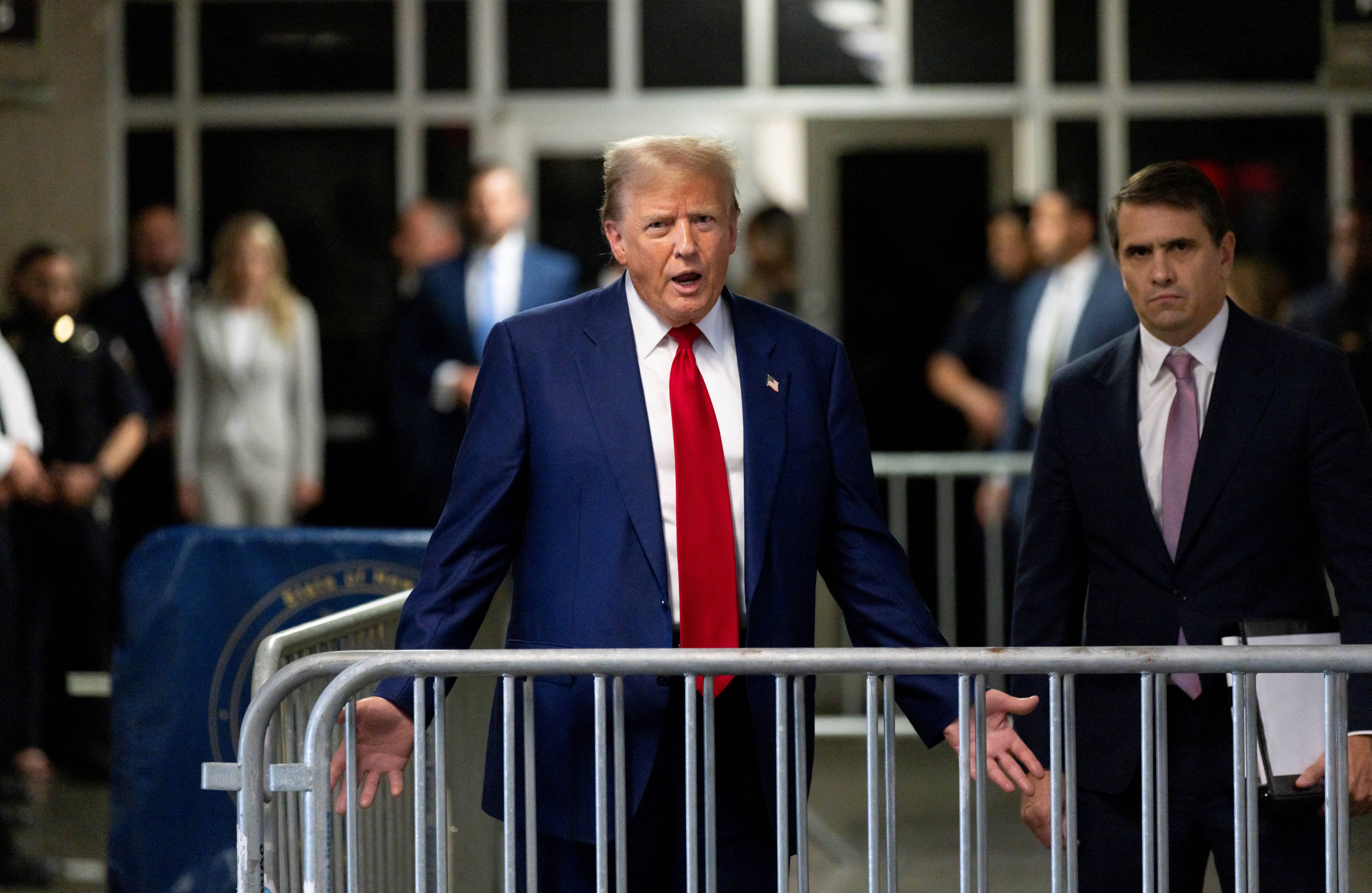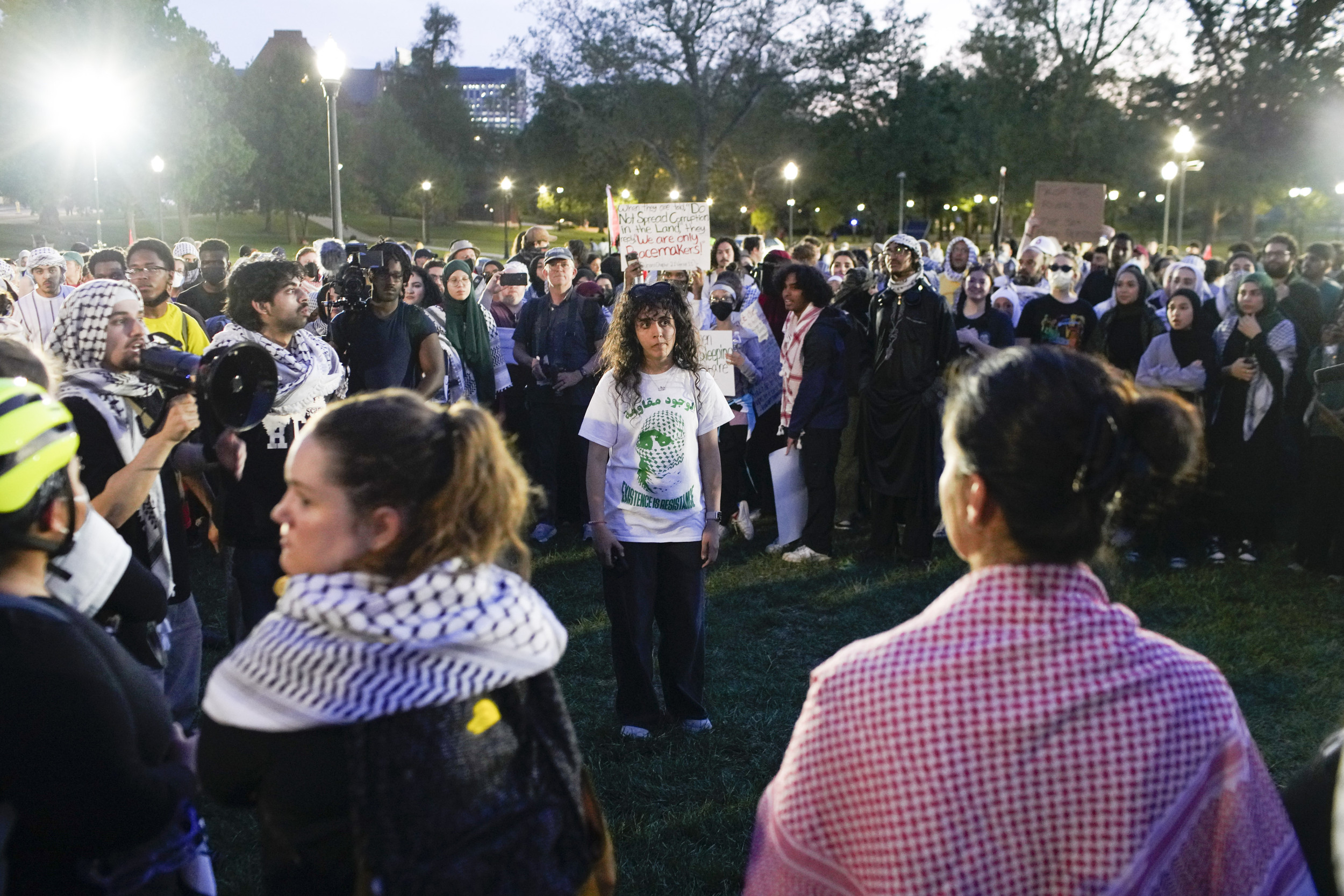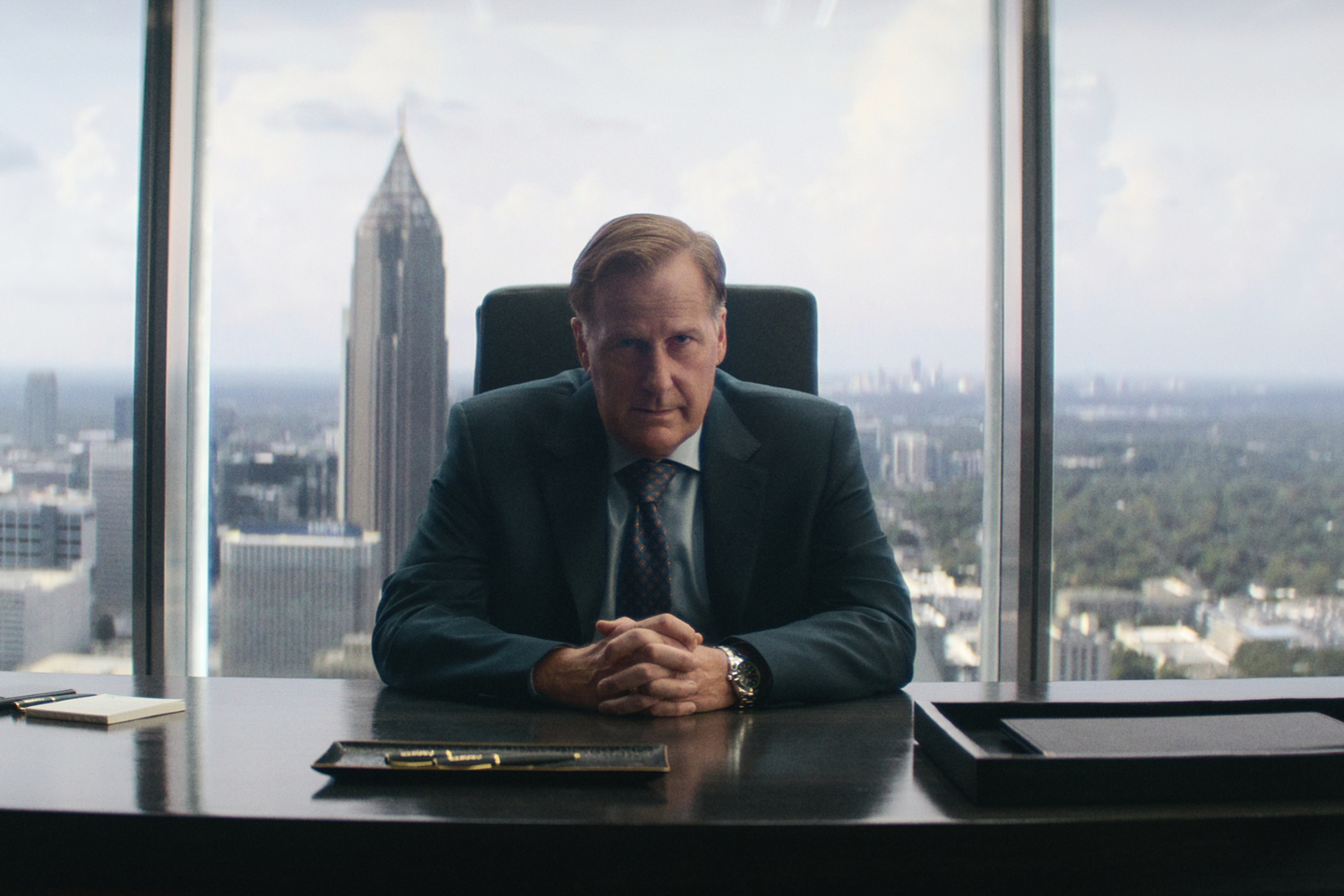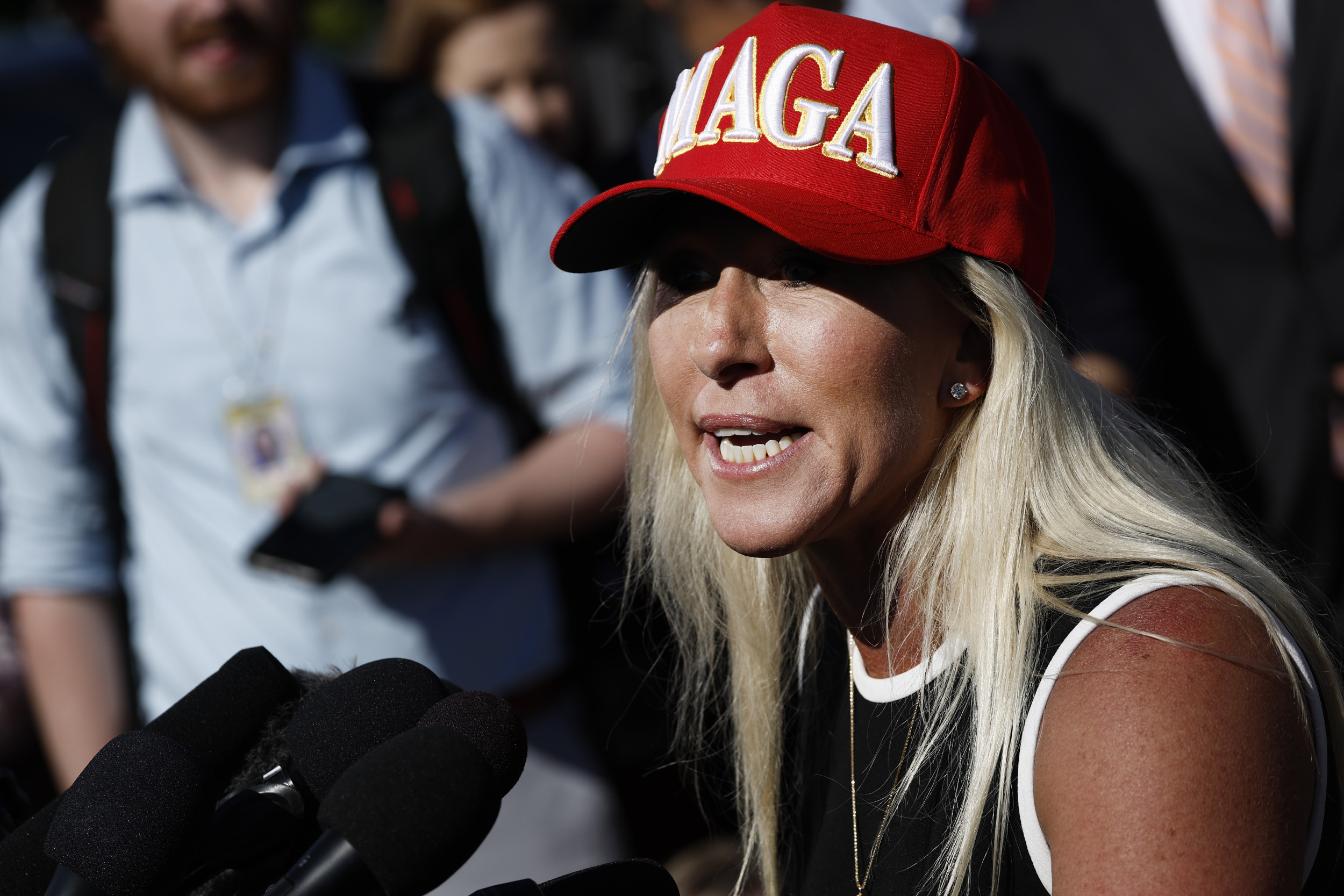As reports of new clashes shatter hopes for yet another ceasefire effort in Sudan, the heads of United Nations Peacekeeping and its three largest missions tell Newsweek a worsening conflict will have grave implications not just across Africa, but potentially around the world as well.
"It does affect all of us," U.N. Under Secretary General for Peace Operations Jean-Pierre Lacroix told Newsweek.
The conflict between the official Sudanese Armed Forces and paramilitary Rapid Support Forces has dragged on for a month and a half, already prompting a major humanitarian crisis and causing the deaths of at least 1,000 people.
As U.N. Peacekeeping marked its 75th anniversary on Monday, Lacroix warned that the situation had the potential to further deteriorate considerably and spread beyond the African nation's borders, bringing guns, drugs and militants across continents.
"All of this trafficking, it is regional and global in nature," Lacroix said. "They feed violent groups, some of them can be terrorists, some of them can be criminals, some of them both, and all over the world, really."
After six years at the helm of U.N. Peacekeeping, Lacroix is proud of what the multilateral institution has accomplished. Comprised of some 87,000 personnel, including more than 63,000 troops hailing from 125 nations, it currently maintains 12 active missions, most of them in Africa. But he warns that serious challenges remain as peacekeepers mobilize to prevent total state collapses.
"So, I think one can think of these situations where basically a region or territory massively destabilizes, there is no state capacity anymore, it's basically a breeding ground for these criminal groups," he added, "all kinds of illegal activities, which, again, affect all of us."
In fact, the spillover has already begun.
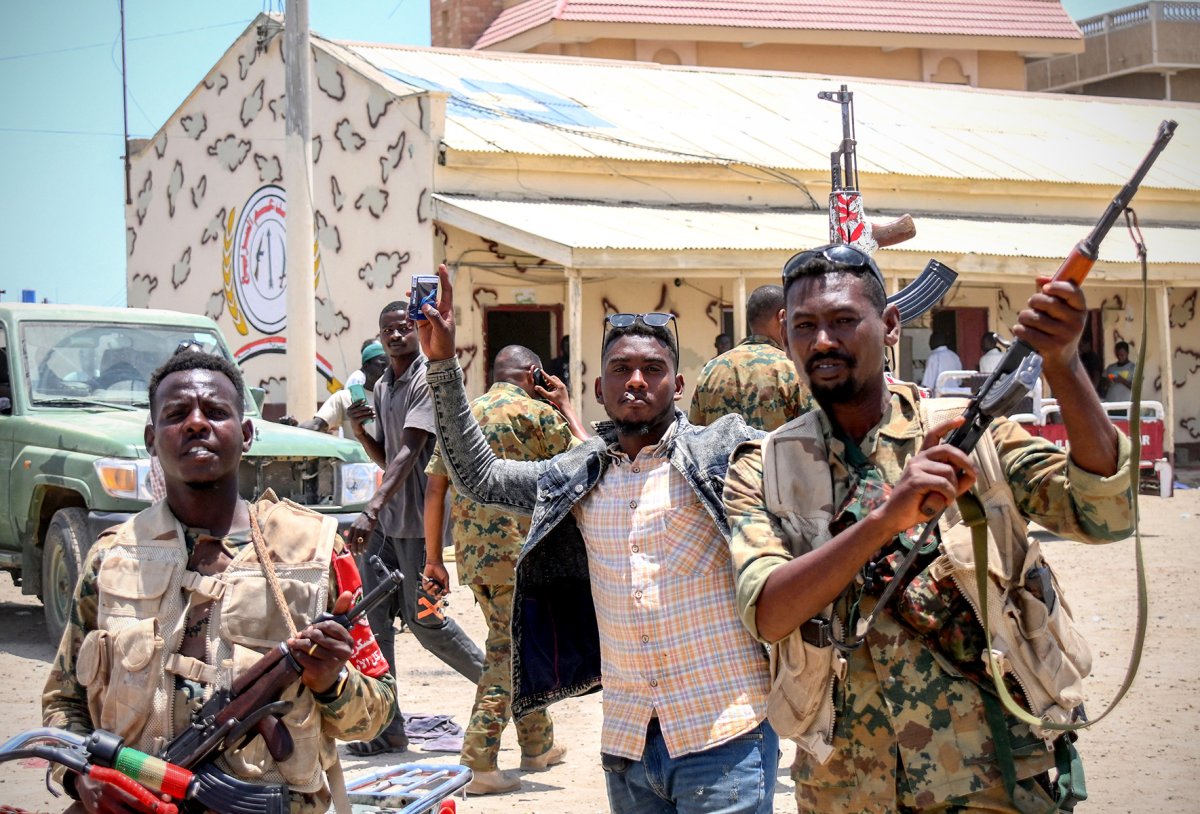
The fighting in Sudan, home to one of Africa's largest refugee populations, has prompted a mass exodus to neighboring countries in which U.N. Peacekeeping missions operate in support of efforts to stabilize internal conflicts and address massive humanitarian needs.
The risk of compounding crises is severe in Africa, where the Islamic State militant group (ISIS) is more active than anywhere else in the world, and other transnational militant groups continue to exploit insecurity and weak governance.
The situation in South Sudan is particularly sensitive, as displaced persons have already begun to enter Abyei, an oil-rich territory claimed by both Sudan and South Sudan. The feud over this borderland has outlasted the 2006 peace agreement that ended a civil war and paved the way for South Sudan's independence in 2011.
"It is clear that as long as the conflict in Sudan continues," Lacroix said, "it is unlikely that we will witness any meaningful sort of advances in the political discussion between these two countries on Abyei."
"I also believe that this is a region where you have a variety of armed groups," he added, "and a conflict like the one in Sudan also has the potential to attract combatants and armed groups, therefore, of course, adding to the tensions and instability."
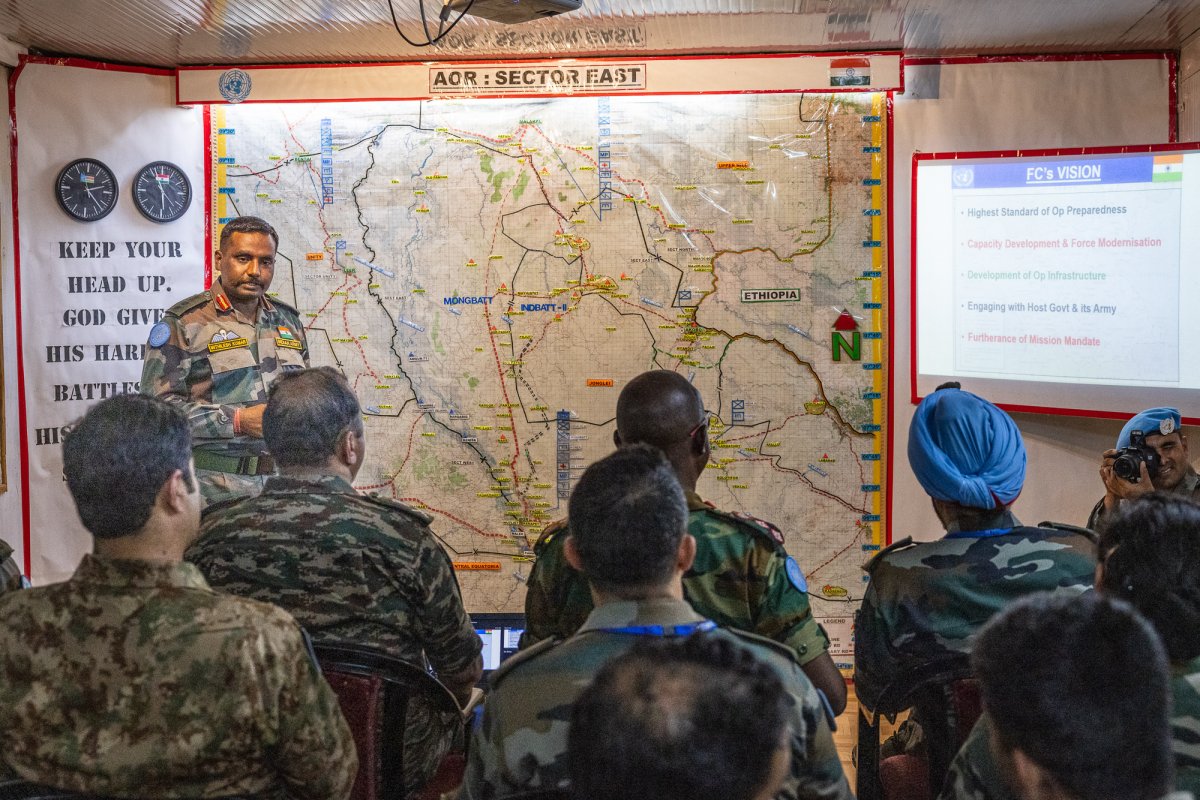
Nicholas Haysom, head of the U.N. Mission in South Sudan (UNMISS) and special representative to the U.N. Secretary-General, told Newsweek that so far tens of thousands of people have fled to South Sudan to escape unrest north of the world's newest internationally recognized border.
And while South Sudan has opened its borders to undocumented individuals, many of whom are South Sudanese, Haysom warned that the strain has already begun to be felt in the form of critical supply chain disruptions, soaring commodity prices and "occasional incidents of almost ethnic conflict" erupting as waves of refugees compete for scarce resources in already crowded displaced persons camps.
He said U.N. Peacekeeping's largest mission is already spread thin as personnel contend not only with a contentious political and security environment, for which a growing number of temporary bases have been assembled, but also climate catastrophes in the form of devastating floods.
A deepening crisis in Sudan could ultimately exacerbate the challenges faced in South Sudan, and such mass migrations can also have ripple effects far beyond the Horn of Africa.
"A flood of refugees from South Sudan, from Ethiopia or any of the Horn countries will immediately have an impact on at least Western countries," Haysom said, "and maybe some beyond."
As head of UNMISS, Haysom's first priority is ensuring stability within South Sudan. He warns that the country is increasingly "vulnerable" to two major potential effects of the northern conflict: damage to vital oil pipelines on which South Sudan's economy depends, and reversal of hard-won political gains that reduced the activity of armed groups such as the Nuer White Army, which has become increasingly active in recent months.
Haysom says the entire region "is interlinked."
"We've got a war in Sudan, we're coming out of a war in Ethiopia, there's Somalia, the Central African Republic, there's Libya," he said. "So, it's a hugely precarious and fragile setting, and South Sudan sits in the middle."
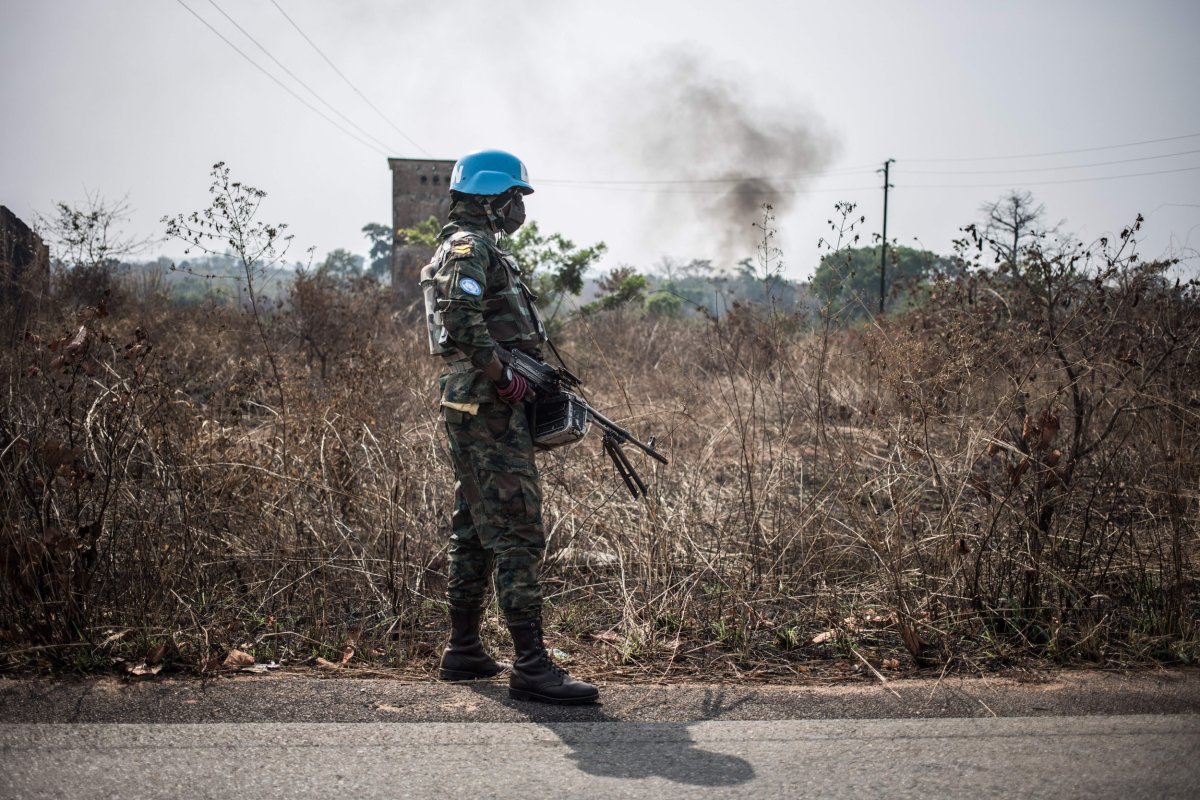
Similar concerns persist in the neighboring Central African Republic (CAR), which remains mired in an ongoing civil war. U.N. Multidimensional Integrated Stabilization Mission in the CAR (MINUSCA) chief and Special Representative to the U.N. Secretary General Valentine Rugwabiza says she is "quite concerned about what is happening in Sudan."
As they have in South Sudan, thousands of refugees have crossed the border into CAR, complicating an already immense demand for humanitarian assistance.
"We work with the humanitarian community to respond, and the response was fast," Rugwabiza told Newsweek. "However, if the conflict is to last, that would put the Central African Republic in a very difficult situation. If the conflict in Sudan is to last, that means that there will be a humanitarian crisis."
Her concerns are not limited to the large, remote swathes of the country located near the borders with Sudan and South Sudan, but also extend to the activities of militant factions that have relationships with groups operating in Sudan's restive Darfur region, such as the Janjaweed militia that today constitutes much of the Rapid Support Forces locked in battle with the Sudanese Armed Forces.
"Armed groups, which were operating in that region and operating across the border, including armed groups that were operating closely with the Janjaweed," Rugwabiza said, "they see this crisis as an opportunity for them to be much bolder in attacking cities that Central Africans had managed to secure."
Such attacks have already begun in cities such as Tiringoulou, where MINUSCA forces deployed last week to regain control from the rebel Coalition of Patriots for Change that had driven out CAR security forces and humanitarian workers. MINUSCA has started to pre-position its forces in strategic areas, but Rugwabiza acknowledges that, "of course, we cannot be everywhere."
As is the case in a number of African countries, growing militant activity in the CAR has led to frustration over Western intervention, especially that of former colonizer France, whose last contingent troops departed the country in December. Russia's Wagner Group has stepped into the vacuum and established an influential presence, as it had in Sudan as well.
Still, Rugwabiza argues that MINUSCA's response highlights the important work that U.N. Peacekeeping does, while offering an insight into what could happen if instability reaches its end point.
"Once it becomes a lawless territory, then the damages are not limited to Central Africa," Rugwabiza said. "If there is absolutely no central authority, those impacts will be contagious. So, it will be the entire sub-region of Central Africa, and it will grow beyond Central Africa."
Referring to the CAR's six borders with Cameroon, Chad, the Republic of the Congo, the Democratic Republic of the Congo, Sudan and South Sudan, she said that "nearly all these countries are in a fragile situation."
"And if Central Africa becomes a center of operation of armed groups and non-state actors," Rugwabiza said, "the insecurity will definitely affect all other countries."
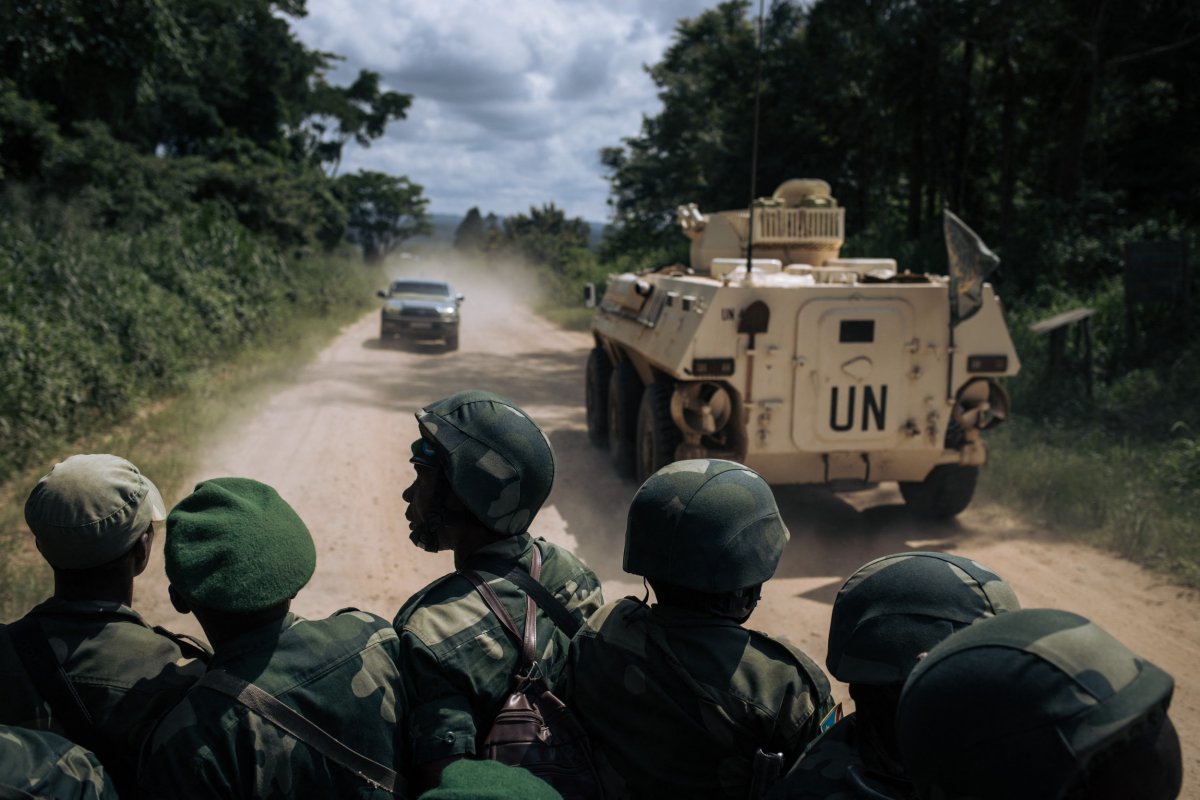
Sudan's crisis has sparked a response as far away as the Democratic Republic of the Congo (DRC), where the U.N. Organization Stabilization Mission in the DRC (MONUSCO) aided in efforts to evacuate colleagues trapped as clashes between the Sudanese Armed Forces and Rapid Support Forces quickly spiraled into an all-out conflict last month.
MONUSCO chief and Special Representative to the U.N. Secretary-General Bintou Keita expressed to Newsweek her "hope that we will have a cessation of hostilities and the ceasefire respected as everyone is calling for, because honestly it breaks my heart to see what has happened."
Keita has a direct relationship to the deep-rooted unrest in Sudan, having previously served as deputy joint special envoy for the African Union-U.N. Hybrid Operation in Darfur. The western region long marred by ethnic violence has witnessed some of the deadliest clashes of the current conflict in Sudan.
As head of MONUSCO, Keita's focus today is preserving and attempting to advance efforts to secure large parts of the DRC, a nation roughly the size of Western Europe. The DRC has been at the center of some of Africa's deadliest interstate wars and, while hostile foreign troops have withdrawn and armed groups are currently limited to just three of the country's 26 provinces, insurgency remains a major issue. Here too, support for Russia and anti-Western sentiment has been on the rise.
Among the most active factions is the Allied Democratic Forces, an ISIS affiliate once accused by Uganda, where the group was originally based, of having ties to Sudan. Such forces pose a threat to the strides made by MONUSCO in security, humanitarian support, justice reform and the protection of children.
Given the interconnectivity between African nations that extends to culture, economies and even crises, Keita is calling for "further integration" of U.N. efforts across the continent beyond just the mandates of individual missions. Ultimately, she argued, the success of these efforts is not just in the DRC or even Africa's interest, but that of the international community as a whole.
Keita described the vast rainforests of the DRC as "the lungs of the planet after the Amazon," and, referring to the DRC's sprawling deposits of gold, cobalt, lithium and other resources, she also noted that "the country is so rich in minerals and very strategic minerals."
"The batteries of all these things that are very important to the newest technologies are in a way coming from this country," Keita said, specifically noting the rising global demand for cell phones, electric cars and other key technologies that require rare earth minerals.
For those wondering from abroad why instability in the DRC or other regional countries should matter to them, Keita said that her message is to convey "how their daily lives are impacted and affected by what is going on 10,000 kilometers away from them."
"Because they may not realize that what they have in their hands, what makes them function over there," she added, "is coming from that particular place."
Uncommon Knowledge
Newsweek is committed to challenging conventional wisdom and finding connections in the search for common ground.
Newsweek is committed to challenging conventional wisdom and finding connections in the search for common ground.
About the writer
Based in his hometown of Staten Island, New York City, Tom O'Connor is an award-winning Senior Writer of Foreign Policy ... Read more
To read how Newsweek uses AI as a newsroom tool, Click here.



